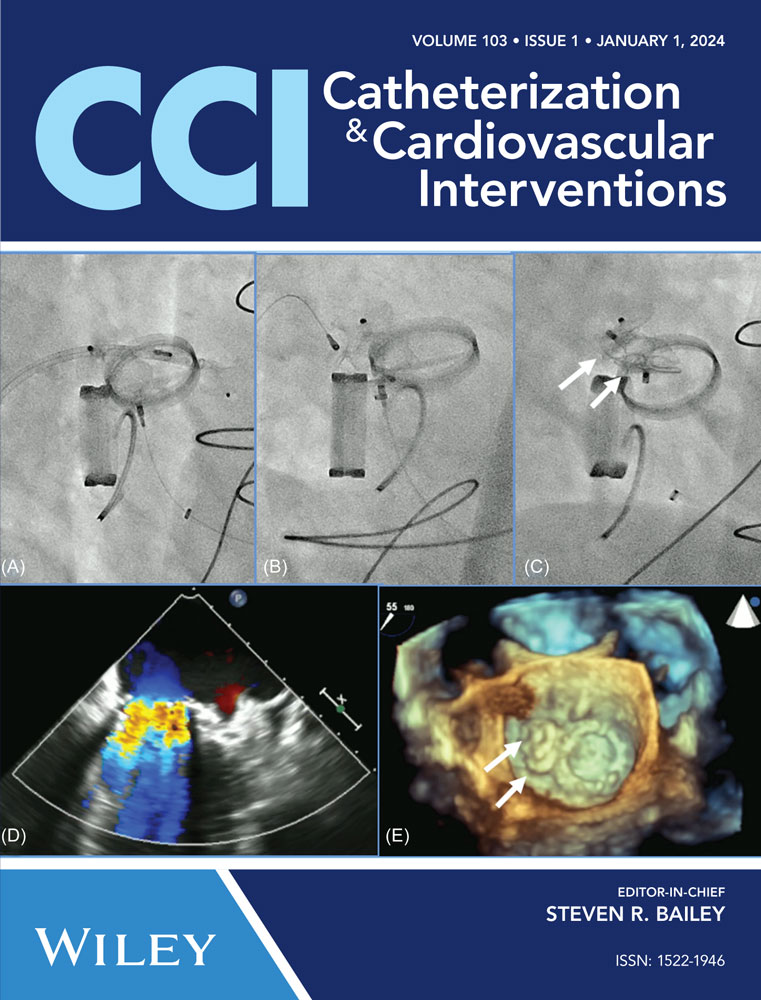Applicability of J-CTO channel score to predict microcatheter tracking during retrograde percutaneous coronary intervention of chronic total occlusions: Insights from the SURFING MICRO registry
Abstract
Background
The J-chronic total occlusion (CTO) channel score can predict guidewire tracking of the collateral channels (CCs), but its efficacy in predicting microcatheter tracking has never been tested in the setting of retrograde CTO-percutaneous coronary intervention (PCI).
Aims
Predicting microcatheter collateral tracking during retrograde CTO-PCIs.
Methods
A total of 189 patients undergoing retrograde CTO-PCI from April 2017 to August 2021 were screened. The primary outcome of interest was a correlation between J-CTO channel score and microcatheter tracking failure (MTF) after successful CC tracking by the guidewire. The independent association between anatomical features of the J-CTO channel score and the primary outcome of interest was explored.
Results
After adjustment, only small size (adjusted OR: 12.70, 95% confidence interval [CI]: 1.79−89.82; p = 0.01) and continuous bends (adjusted OR: 14.15, 95% CI: 2.77−72.34; p < 0.001) remained significantly associated with an increased risk of MTF for septal collaterals. The small size was the only predictor of the MTF for epicardial collaterals (OR: 6.39, 95% CI: 1.13−35.96; p = 0.020) at univariate analysis. Patients in the MTF group had a lower incidence of procedural success compared with patients in the microcatheter tracking success (MTS) group (40.0% vs. 93.9%, p < 0.001) and had a higher incidence of collateral perforations (20.0% vs. 3.0%, p < 0.001).
Conclusion
Small and tortuous septal collaterals, identified by a score ≥3, are associated with an increased risk of MTF, lower incidence of procedural success, and higher risk of procedural complications driven by collateral perforations.
CONFLICTS OF INTEREST STATEMENT
Dr. Lorenzo Azzalini received consulting fees from Abiomed, Teleflex, GE Healthcare, Philips, Abbott Vascular, Asahi Intecc, and Cardiovascular Systems, Inc. Corrado Tamburino is consultant for Medtronic and received speaker honoraria from Meril. Ferdinando Varbella receiving consulting fees from Amgen, Sanofi, Pfizer, Astra Zeneca, Daichi Sankyio, and Bayer. Alessio La Manna is proctor for Kardia srl, Terumo Italia, and GADA spa. The remaining authors declare no conflict of interest.
Open Research
DATA AVAILABILITY STATEMENT
The data that support the findings of this study are available on request from the corresponding author. The data are not publicly available due to privacy or ethical restrictions.




